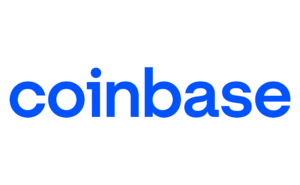Takeaways
- Cold wallets store cryptocurrencies offline and are best for large amounts of crypto.
- Cold wallets come in three common types: hardware, sound, and paper wallets.
- Cold wallets are used by cryptocurrency evangelists who tout their security features.
- Cold wallets are more complicated to hack than hot wallets connected to the internet.
- Cold wallets can range significantly in price based on core features and technology enhancements.
Some of the links in this article are from advertising partners of Smart Money, which does not influence our evaluations or recommendations. We work to provide you with accurate and reliable information. Our opinions are our own.
What is a Cold Wallet?
A cold wallet is a type of cryptocurrency wallet that stores your private keys offline [1]. You can store Bitcoin and other cryptocurrencies in these wallets.
Not being connected to the internet provides a higher level of security by isolating them from online threats like hackers. Offline storage is essential because it safeguards your keys from unauthorized access if your wallet is stored on an internet-connected device called a hot wallet.
Cold wallets are handy for storing large amounts of cryptocurrencies, like Bitcoin, because they reduce the risk of theft and cyber-attacks. Many cryptocurrency exchanges, like Coinbase, offer free hot wallet storage.
If you want to optimize for security, getting the best cold wallet could be what you really need. There are several types of cold wallets to consider, including hardware, paper, and sound wallets:
- Hardware wallets are small physical devices like a USB key and are the most popular due to their ease of use and security features. They allow transactions to be signed offline before being sent to the blockchain network.
- Sound wallets store your private keys as audio files. They require specific tools to decode, making them less accessible to beginner cryptocurrency investors.
- Paper wallets are private keys printed on paper and are very cost-effective, but they can be easily damaged or lost.

on Coinbase Website
Coinbase
Smart Money Rating: 4.5/5
Best For: Investing in Crypto
Bonus Offer: Up to $200 for Getting Started (Terms Apply)
5 Best Cold Wallets
Due to the surge in Bitcoin and cryptocurrency popularity, there has been a similar surge in the quantity and quality of cold wallets. Smart Money has selected several cold wallets, which are noted for their strong security features and user-friendly interfaces. Here's a brief overview of five of our favorite devices:
1. ELLIPAL Titan 2.0
The ELLIPAL Titan is known for its complete air-gapping. Air-gapping is a security measure that isolates a computer or network, preventing it from establishing an external network. In cold wallet terminology, air-gapping means the wallet does not require an internet or cable connection.
The ELLIPAL Titan supports a wide range of over 10,000 coins and tokens. For enhanced security, it offers transaction signing via a QR code.

2. Ledger Nano S Plus
The Ledger Nano S Plus offers excellent value and supports over 5,500 cryptocurrencies. This cold wallet operates through the Ledger live app, facilitating crypto transactions, staking, and token swaps.
It is known for its affordability and comprehensive security measures.

3. Trezor Model T
The Trezor Model T is a higher-end cold wallet model from Trezor. This hardware wallet has a touchscreen feature for easier use.
It supports over 1,800 cryptocurrencies and integrates with a third-party exchange for trading directly from your wallet. Current users have noted its strong security protocols.

4. NGRAVE ZERO
The NGRAVE ZERO is a premium cold wallet. This wallet offers top-of-the-line security with an EAL7-rated operating system.
It also uses other security features, like biometric authentication, and operates completely air-gapped, meaning it never connects to the internet or external devices.

5. SafePal X1
The SafePal X1 is one of the most affordable options among the top cold wallets. It supports over 10,000 cryptocurrencies and includes innovative security features like a built-in camera for scanning QR codes and a physical keyboard for secure data entry.

Advantages of Cold Wallets
Cold wallets offer many advantages for cryptocurrency investors, most of which revolve around security and control over your digital assets. Here are three main benefits of cold wallets:
Enhanced Security
Cold wallets store private keys offline, effectively isolating them from online threats [2]. As a result, your cold wallet is immune from malicious smart contract executions.
These online threats have been known to cause significant losses in the crypto community. Even though cold wallets are susceptible to physical damage or loss, they can be secured physically in a way that hot wallets cannot. For instance, a hardware wallet can be stored in a safe or lockbox.
Control Over Private Keys
A cold wallet holds your private keys, giving you complete control and access to your cryptocurrency.
Many cryptocurrency investors find this autonomy necessary, especially when third-party breaches can lead to currency and investment theft.
Long-Term Storage
Cold wallets are better suited for long-term storage of cryptocurrencies.
This is primarily because they are not prone to the risks associated with hot wallets, such as exchange hacks or wallet provider insolvency.
Get Smart With Your Money
Fresh weekly articles delivered straight to your inbox.
Enter your name and email for free tips and tricks.

Disadvantages of Cold Wallets
Cold wallets are super convenient for safely storing large amounts of cryptocurrencies. However, for beginner investors this can feel analogous to storing physical cash in a lock box. Here are several disadvantages of cold wallets to consider before making your purchase:
Convenience and Accessibility
Cold walls are less convenient if you like to make frequent crypto transactions, like using Bitcoin to purchase coffee or a meal. They require additional steps to transfer and conduct transactions offline.
They do not readily facilitate interactions with applications or smart contracts, which can limit their functionality compared to the connected hot wallets.
Expensive
Cold wallets, particularly the hardware wallet, require an upfront investment that can be a barrier if you are operating on a limited budget.
However, many crypto investors will tell you that the cost of a cold wallet should be considered insurance for your investment
Physical Vulnerability
Cold wallets are physical devices that can be lost, damaged, misplaced, or stolen.
If this happens, you might lose access to your cryptocurrency and not be able to recover your private keys to access your investment (if you haven't backed up your information).
Cold vs. Hot Wallets
- Hot Wallets are digital and connected to the Internet. This makes them convenient for frequent transactions, but they are far more vulnerable to cyber-attacks. Read more about how hot wallets work.
- Cold Wallets are offline hardware devices or physical copies of private keys. They provide higher security for long-term storage but are less convenient for someone looking for regular access.
Smart Summary
If you want to invest in cryptocurrencies, you need to think about how you will store your investment. Many investors store their coins on cryptocurrency exchanges and accept the risk of getting hacked. This is why there is a trust distinction in the exchanges that have taken active security measures to protect your assets. Buying the best cold wallet could be a smart money move, especially if you own a lot of Bitcoin or cryptocurrency.
(1) Congressional Research Service. Digital Wallets and Selected Policy Issues. Last Accessed May 6, 2024
(2) Arxiv. Enhancing Cold Wallet Security with Native Multi-Signature schemes in Centralized Exchanges. Last Accessed May 6, 2024.










